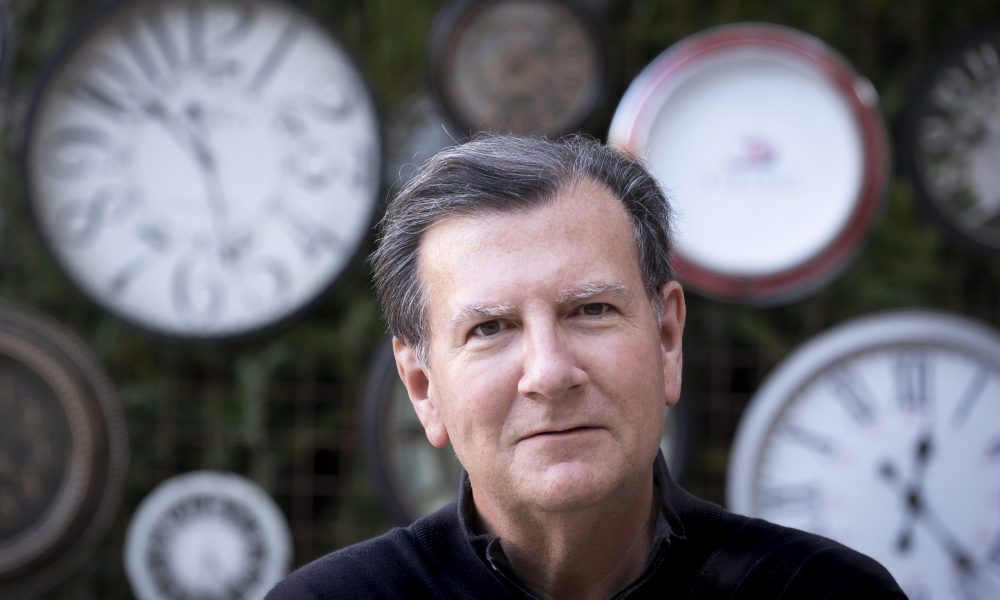

Today we’d like to introduce you to Jeff Rovner.
Jeff, we’d love to hear your story and how you got to where you are today both personally and as an artist.
For most of my life, I would not have described myself as an artist. I studied zoology at the University of Maryland and went on to get a law degree from George Washington University. I practiced corporate law for many years before creating a new career applying technology and knowledge management to the legal practice. That brought me to my early 40s. So far, no art.
Then, I met my wife Marrie and started a family with the birth of our daughter Haley. I felt a lot of responsibility as a new father, including the responsibility of capturing beautiful photographs of Haley that she would one day show her own children. So, I bought an old-school Leica camera that forced me to shoot in manual mode and to understand the nuances of lighting and composition. I immersed myself in the principles and photographs of the masters, including Ansel Adams, Irving Penn, and Henri Cartier-Bresson. And I studied with photographers of the Magnum Photo Agency, National Geographic, and the Leica Akademie. I still would not have called myself an artist, but I had learned how to make much better and more compelling photographs.
Then, when I was in my mid-50s, Haley was invited to join an all-kids circus troupe called Le Petit Cirque. It was like a miniature Cirque du Soleil, with aerialists, acrobats, contortionists, and more. I became the troupe’s official photographer, capturing images of the performers in their colorful costumes during their rehearsals and performances. Suddenly I had a story to tell. I created a book of my photographs so each of the kids and their families would have a permanent memory of their time in the circus.
At the prompting of a friend, I submitted some portraits from my book to the jury at a local art festival, and they invited me to become an exhibitor. That was in 2017. Somewhere along the line, it seems, I had become an artist.
We’d love to hear more about your art. What do you do and why and what do you hope others will take away from your work?
My photographs span several genres. In the past, I’ve focused on portraiture. I especially enjoy making environmental portraits that use a subject’s surroundings to help tell their story and reveal their character. My photographs of Le Petit Cirque fit that category. I continued that genre when I traveled to Myanmar to make portraits of monks in their monasteries.
I also like the serendipity and challenge of street photography, which isolates interesting compositions and juxtapositions from ordinary life. Some of my circus photographs fit that theme.
Most recently, I’ve begun using my photographs not as ends in themselves, but as instruments to explore a concept. My new ARTIFICIAL INTELLIGENCE portfolio begins with large, colorful studio photographs of vintage toys, and then adds an overlay of computer code etched into the protective plexiglass pane above each photograph. The result is a study of old vs. new, right brain vs left brain, light vs. shadow, and the myriad ways artificial intelligence is changing our world.
If I had to find a unifying thread that runs through all my work, it is an attempt to find order and meaning in chaos.
Do current events, local or global, affect your work and what you are focused on?
I believe art is more relevant now than ever before. Our technologies connect us, but also increasingly isolate us and divide us. Art has the power to remind us of the values and human needs we share, and thereby increase our empathy and reduce our alienation. We could all use a lot more empathy and a lot less alienation these days.
Thanks to social media, art is increasingly accessible, and all of us are now curators. We are all participating in a grand art experiment. It remains to be seen whether the experiment will prove beneficial overall.
My ARTIFICIAL INTELLIGENCE photographs have introduced me to a growing community of artists and technologists who seek to combine those worlds, to imbue technology with an artistic sensibility. As someone with a passion for art and a career in technology, I am very supportive of that trend.
Do you have any events or exhibitions coming up? Where would one go to see more of your work? How can people support you and your artwork?
My work can always be viewed on my website, jeffrovner.com. During the months of July and August of 2017, 2018, and 2019, I’ve exhibited my photographs at the Laguna Beach Festival of Arts, a beautiful venue that attracts over 200,000 visitors each year. I plan to exhibit at the Festival again next summer.
I am also open to exhibiting my art at other venues that complement my work. At the invitation of the United Nations, for example, I exhibited my ARTIFICIAL INTELLIGENCE portfolio at the UN’s annual AI for Good Global Summit in Geneva, Switzerland.
It’s my dream to exhibit my conceptual AI photographs at a museum, where visitors have more time to appreciate the concepts underlying the art.
Contact Info:
- Website: www.jeffrovner.com
- Email: jeff.rovner@gmail.com
- Instagram: https://www.instagram.com/jeffrovner/
- Other: https://www.linkedin.com/in/jrovner/







 Image Credit:
Image Credit:
Jeffrey Scott Rovner
Suggest a story: VoyageLA is built on recommendations from the community; it’s how we uncover hidden gems, so if you or someone you know deserves recognition please let us know here.




















Cholito
October 3, 2019 at 14:50
Jeff Rovner is amazing!
Jeff Rovner
November 2, 2019 at 18:42
And Cholito is kind.